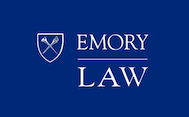
Commercial and Bankruptcy Law: News Releases and In the News


Simon: Sacklers get 'all of the benefit, none of the costs' in bankruptcy deal

Pardo: What determines "undue hardship" for student loan debt?
In all but the rarest circumstances, people who declare bankruptcy still have to repay their student debt, Bloomberg reports. The Education Department can deny people bankruptcy if its lawyers can show that debtors are spending too much on such things as fast food, cable television, or even their pension plans. "When we focus so much on the minutia of each and every individual expense, it can become a distracting sideshow where we aren't really answering the big picture question, which is, is there any ability to repay the amounts that are owed?" says Professor Rafael Pardo.

Pending cases could change standard for student debt relief
One of the things that sets student loan debt apart from all other types of debt is that it's almost impossible to get rid of it. But according to a Marketplace story, a couple of cases working their way through the legal system could change that. "It seems like there's a lot of buzz and activity and maybe the climate is right to finally get some sort of resolution to this issue," said Robert T. Thompson Professor of Law Rafael Pardo, who adds that in the 10 years he's studied the topic he hasn't seen this much legal activity surrounding it.

Lawsuit may affect millions with student loans, Pardo tells Bloomberg
Unlike most debt, student loans are next to impossible to discharge through bankruptcy proceedings, because of a 1970s rule that requires an undefined standard of "undue hardship." A man whose debt stems from funding his three children's education has filed a lawsuit that could fundamentally change the way bankruptcy courts handle college debt. It's about time, says Robert T. Thompson Professor of Law Rafael Pardo. "The idea of bankruptcy is to give people respite and relief," he says. "The question is a really simple one: can you pay back your debts in the future? And if the answer is no, then why aren't you giving relief to a person?"

Pardo in the NY Times: Judge issues "clarion call" for more forgiving student debt standard
For decades, student loan debt has been notoriously difficult to discharge, largely due to the "Brunner test" used to interpret whether repaying a loan represents an undue hardship. Federal Judge Frank Easterbrook's opinion in Susan Krieger's 2013 debt case seemed to signal that requiring debtors to prove their futures are "hopeless," is taking that standard too far. That's a big deal, Emory Law Professor Rafael Pardo tells the New York Times.

Student loan creditors use bulldog tactics, Pardo says in New York Times
Loan Monitor Is Accused of Ruthless Tactics on Student Debt

Pardo in WSJ: avoid adjustable-rate mortgages
ARMs have few virtues (if any) to extol.

Pardo quoted in WSJ on difficulties of discharging student debt
Crippled by student debt, Lori Kitchen quit her government job just months after graduating from American University in 2007, figuring she would lose her security clearance once she fell behind on her loan payments. Ms. Kitchen eventually found relief where no on told her to look: bankruptcy court.